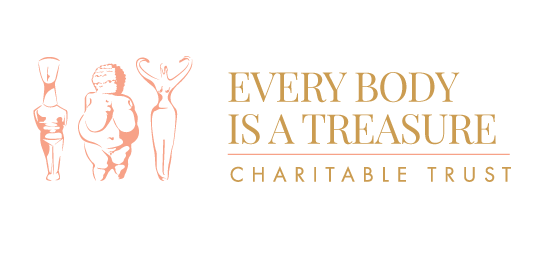Below is a list of some of the services available in New Zealand that offer support, information and help. All services are available 24 hours a day, seven days a week unless otherwise specified.
National helplines
Need to talk? Free call or text 1737 any time for support from a trained counsellor
Lifeline - 0800 543 354 (0800 LIFELINE) or free text 4357 (HELP)
Suicide Crisis Helpline - 0508 828 865 (0508 TAUTOKO) (guides and safety plans here)
Healthline - 0800 611 116
Samaritans - 0800 726 666
Depression-specific helplines
Depression Helpline - 0800 111 757 or free text 4202 (to talk to a trained counsellor about how you are feeling or to ask any questions)
www.depression.org.nz - includes The Journal online help service
SPARX.org.nz - online e-therapy tool provided by the University of Auckland that helps young people learn skills to deal with feeling down, depressed or stressed
Sexuality or gender identity helpline
OUTLine NZ - 0800 688 5463 (OUTLINE) provides confidential telephone support
Helplines for children and young people
Youthline - 0800 376 633, free text 234 or email talk@youthline.co.nz or online chat
thelowdown.co.nz - or email team@thelowdown.co.nz or free text 5626
What's Up - 0800 942 8787 (for 5-18 year olds). Phone counselling is available Monday to Friday, 12noon-11pm and weekends, 3pm-11pm. Online chat is available from 3pm-10pm 7 days a week, including all public holidays.
Kidsline - 0800 54 37 54 (0800 kidsline) for young people up to 18 years of age. Open 24/7.
Help for parents, family and friends
Commonground - a website hub providing parents, family, whānau and friends with access to information, tools and support to help a young person who is struggling.
EDANZ - improving outcomes for people with eating disorders and their families. Freephone 0800 2 EDANZ or 0800 233 269, or in Auckland 09 522 2679. Or email info@ed.org.nz.
Parent Help - 0800 568 856 for parents/whānau seeking support, advice and practical strategies on all parenting concerns. Anonymous, non-judgemental and confidential.
Family Services 211 Helpline - 0800 211 211 for help finding (and direct transfer to) community based health and social support services in your area.
Skylight - 0800 299 100 for support through trauma, loss and grief; 9am-5pm weekdays.
Supporting Families In Mental Illness - For families and whānau supporting a loved one who has a mental illness. Auckland 0800 732 825. Find other regions' contact details here.
Other specialist helplines
Alcohol and Drug Helpline - 0800 787 797 or online chat
Are You OK - 0800 456 450 family violence helpline
Gambling Helpline - 0800 654 655
Anxiety phone line - 0800 269 4389 (0800 ANXIETY)
Seniorline - 0800 725 463 A free information service for older people
0508MUSICHELP - The Wellbeing Service is a 24/7 online, on the phone and in-person counselling service fully funded by the NZ Music Foundation and provided free of charge to those in the Kiwi music community who can't access the help they need due to hardship and other circumstances. Call 0508 MUSICHELP.
Shine - 0508 744 633 confidential domestic abuse helpline
Quit Line - 0800 778 778 smoking cessation help
Vagus Line - 0800 56 76 666 (Mon, Wed, Fri 12 noon - 2pm). Promote family harmony among Chinese, enhance parenting skills, decrease conflict among family members (couple, parent-child, in-laws) and stop family violence
Women's Refuge Crisisline - 0800 733 843 (0800 REFUGE) (for women living with violence, or in fear, in their relationship or family)
Shakti Crisis Line - 0800 742 584 (for migrant or refugee women living with family violence
Rape Crisis - 0800 883 300 (for support after rape or sexual assault)
Warmlines for consumers of mental health services
Free peer support services for people experiencing mental illness or those supporting them
Canterbury and West Coast - 03 379 8415 / 0800 899 276 (1pm to midnight, seven nights)
Wellington 0800 200 207 (7pm-1am, Tuesday to Sunday)
Auckland Central 0508 927 654 or 0508 WARMLINE (8pm to midnight, seven nights)
See also: Apps, e-therapy & guided self help
Self Harm Help:
Shared from: https://mentalhealth.org.nz/conditions/condition/self-harm
About self-harm
Who is most at risk of self-harming behaviours?
Anyone can be at risk of self-harming behaviours, but self-harm is more common in young people. Women are more likely than men to be hospitalised for self-harm.
Self-harm can be linked with different kinds of difficult emotions, or overwhelming situations and life events. There is no clear reason why some people self-harm and others do not.
It can be connected with difficult experiences including:
-
- pressures at school or work
-
- physical, sexual or emotional abuse
-
- bullying
-
- money worries
-
- bereavement or grief
-
- friends, family or whānau members who don't support their sexuality or identity
-
- relationship breakups or losing friends
-
- an illness or health problem
-
- childhood trauma, abuse or neglect
-
- intense or difficult feelings, such as depression, anxiety, anger or numbness, that might be experienced as part of a mental illness
-
- being part of a group that self-harm
-
- problems in connection with family, whānau, friends or community.
If you are in crisis
If you have seriously injured yourself, taken poisonous substances or overdosed on medicine or medicines, it is important you see a doctor immediately. Call 111 and ask for an ambulance, or go to the emergency department (ED) at your nearest hospital.
It's important to remember that you can seek help to stop self-harming. With support you can learn new ways to cope with your feelings without hurting yourself, even if you have been self-harming for a long time.
If you are worried about your immediate safety when you have hurt yourself, or are trying not to hurt yourself, do the following:
-
- Call your local mental health crisis assessment team or ask someone to take you to an emergency department (ED) at your nearest hospital.
-
- If you are in immediate physical danger, call 111.
